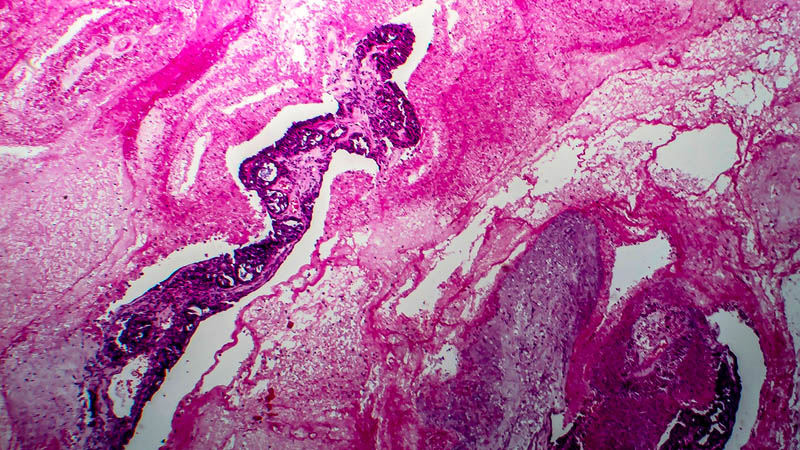The role of PD-1 – a programmed cell death receptor 1 – and its ligands in ovarian cancer immunotherapy
Anna Markowska1, Stefan Sajdak2, Jolanta Lubin3, Janina Markowska4
 Affiliacja i adres do korespondencji
Affiliacja i adres do korespondencjiThe immune system plays an important role in both cancer development and destruction. Tumor cells have developed mechanisms to evade an effective immune response. One of these involves the use of immune checkpoint pathways, which modulate the intensity and duration of such responses. There are two immune checkpoint receptors that have been most thoroughly studied: CTLA-4 (cytotoxic T lymphocyte-associated antigen 4) and PD-1 (programmed cell death protein 1 pathway), involved in regulatory T cell responses. The anti-CTLA-4 antibody is used in the treatment of many malignancies, including non-small-cell lung cancer, prostate cancer and melanoma. PD-1 and its ligands, PD-L1 and PD-L2, represent an immune axis protecting cancer cells against regulatory T cells (cytotoxic CD8+ cells and CD4+ helper cells). Nivolumab, a monoclonal antibody, blocks PD-1 and, as a result, its binding to its ligands. Consequently, T cell antitumor activity is restored, which appears promising in clinical trials involving patients with malignancies in multiple locations, including non-small-cell lung cancer, melanoma and ovarian cancer, clear cell ovarian carcinoma in particular. Nivolumab therapy is not devoid of adverse effects, which affect about 40% of patients with ovarian cancer. These include e.g. arrhythmia, fever, anemia and decreased lymphocyte count. It is believed that combining a therapy that blocks the key immune checkpoints with other anticancer agents, including chemotherapy, radiation therapy or other targeted therapies, will improve treatment efficacy in malignancies, including ovarian cancer.









